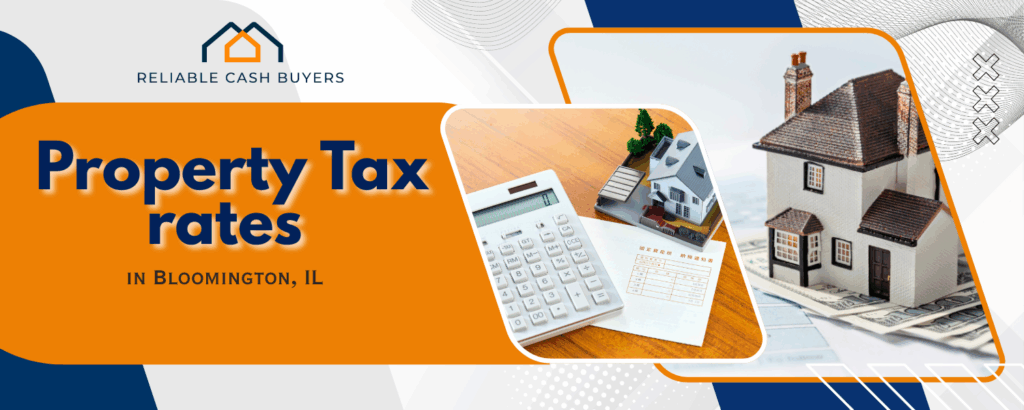
People who buy or own homes in Bloomington, IL need to understand how the property tax rate system works in order to make smart decisions. The office of the city assessor figures out how much a house is worth, which is then used to figure out how much the taxes will be. To find out how much money schools, libraries, and other local services need, multiply this number by the tax rate, which is set each year. People in Bloomington often show the tax rate as a share of the estimated value. When the city’s needs change or when home prices go up or down, the budget can be changed.
You can find out how much your property taxes will go up or down by keeping an eye on any changes or reassessments. If Bloomington property owners know how these rates are set, they can better plan their bills. Things like assessment rates and the fact that some people can get exemptions are part of this.
Factors Influencing Property Tax Rates in Bloomington, Illinois
People who own homes or deal in real estate in Bloomington, Illinois need to know how much property taxes cost. To figure out how much a house is worth, the local assessor’s office looks at sales records and market data. It is very important to do this. This value is directly linked to how much a property owner has to pay in taxes. Having a budget is also very important for city and town leaders. There are city and county governments that decide how much money they need for schools, bridges and roads, and emergency services. So, they worked out how much the tax would be to cover those costs.
The amount of tax you owe might change because of tax breaks and other benefits. For some houses, for example, they may be able to get homestead exemptions or other tax breaks that lower their bill. There are a number of things that could affect property tax rates over time. Two of these are changes in the state budget and inflation. Anyone who owns property and knows how these things work can make a better guess about how their taxes will change and buy property in Bloomington.
How to Calculate Your Property Taxes in Bloomington, IL
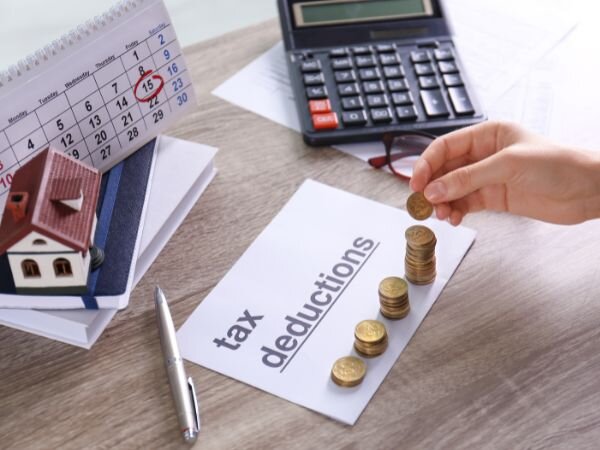
Your Bloomington, IL tax bill will tell you how much property tax you owe. When you pay property taxes, the value of your home is the most important thing. It will be up to the city assessor’s office to decide. The first thing they do when they come to Bloomington to look at your home is find out how much it’s worth on the market. Then they find out the assessment ratio, which for Illinois homes is usually 33.33 percent. Multiply the assessed worth by the tax rate in your area to find out how much property tax you have to pay each year.
There is a percentage tax rate that changes based on what the community needs, like schools and other services. There may be tax breaks that lower the amount that some homes have to pay. These could be veterans or seniors. Find out if your local government has proposed any new changes to tax rates or fees. This will help you figure out if your property taxes will go up or down each year. Real estate buyers and people who own homes in Bloomington will be able to better plan for and guess how much it will cost to own a home there if they keep track of how these things affect each other. For homeowners struggling with rising property taxes, selling to a local cash house buyer like Reliable Cash Buyers in Bloomington offers a quick way to offload the financial burden without waiting months on the traditional market. Contact us Today!
Historical Trends of Property Tax Rates in Bloomington, IL
Bloomington, IL property tax rates have changed over the years because of changes in the business and the way the city government works. Prices have gone up and down in the past because the city needed money, schools needed money, and work was being done to improve the facilities. The taxes on your home help pay for things that Bloomington needs, like schools, police, fire, and public works. Property tax rates may go up when the economy is good or when communities need to spend more money to meet people’s wants.
But if the business is bad or if the government wants things to run more smoothly, they may try to keep these fees the same or even lower them. People who own homes or invest in real estate in Bloomington should be aware of these past trends because they can change the values of their homes and the returns on their investments. When it comes to property taxes in the area, you can get a good idea of what to expect in the future by looking at how tax rates have changed over time and our economy.
Comparing Property Tax Rates Across Illinois Cities
Do you know how Bloomington’s property tax rates stack up against those in other Illinois cities? This is important if you own a home or trade in real estate. Property taxes may be different in different places based on the economy and how much money the government needs for public services.
The amount of property taxes you have to pay in Bloomington is based on how much your home is worth, how much money the school system needs, and the services the city offers. Most of the time, Bloomington’s tax rate is better than those in nearby big towns like Chicago, Peoria, and Champaign. This is because Bloomington has a unique mix of services for the city and things that people need in the neighborhoods.
Still, people who want to buy or trade should think about these rates in light of their plans and goals for their money. This comparison could help you figure out how much money you could make on an investment or if you can afford to buy a house in different parts of Illinois. You will understand why Bloomington’s property tax system is better than those in other states if you learn more about it.
Impact of Local Government Policies on Bloomington’s Property Tax Rates
The rules that Bloomington, IL’s government makes have a big impact on how much people pay in property taxes. This affects both people who own homes and people who buy and sell houses. It is up to the city to choose how much money to spend on things like roads, bridges, schools, and cops. The amount of property tax everyone has to pay changes a lot because of this. Policies for economic growth and zoning can also change how much a house is worth and how much tax it has to pay. Putting money into local services or fixing up the infrastructure, for instance, can often make property prices go up, which can cause property taxes to go up.
But if businesses are given tax breaks or other reasons to move to a certain place, homes may have different tax costs. In order for local governments to stick to their budgets, the state may have to change how it gives money to different places. Some people who work in the Bloomington real estate market need to know how these changes by the city government will affect property taxes.
Strategies for Reducing Your Property Taxes in Bloomington, IL
Bloomington, IL property owners and investors may not fully understand the city’s property tax rates, but there are some things they can do to try to lower them. For starters, you should check that your home is worth what it’s worth. If you compare the value of your home to the values of other homes in the same neighborhood, you might find mistakes. You can talk to the local assessor’s office if you need help.
You can also check to see if there are any tax breaks that could help you. People over the age of 65, soldiers, and people with disabilities can get tax breaks in Bloomington that could help you save a lot of money on your property taxes. People who own their own homes might also want to look into any city programs or incentives that could help them lower their taxes by making their houses more eco-friendly or using less energy.
Go to community meetings where people talk about budgets and assessments and stay up to date on changes to local tax rules. This could help you find other ways to save money. People in Bloomington might be able to handle their property taxes and get more out of their belongings with these tips.
The Role of Assessors in Determining Property Taxes in Bloomington, IL
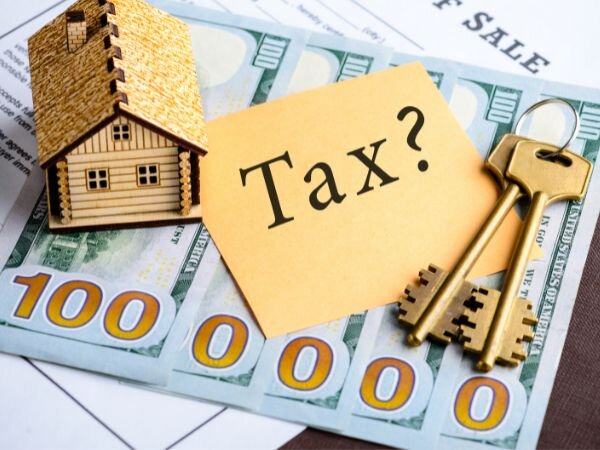
Assessors in Bloomington, Illinois, figure out how much property taxes people and real estate buyers need to pay to the government. Assessors are the ones who figure out how much a house is worth on the market. This is how they come up with the tax amount for each home. For this method, you need to pay close attention to the property’s size and position, as well as any changes that have been made to it and the general trends in the Bloomington real estate market. These things help property appraisers make sure that all homes are valued the same way.
The owner then has to pay property taxes that are based on the home’s estimated value times the tax rate in their area. An review every so often keeps things in order and shows how the real estate market is changing. This is what makes sure people pay the right amount of taxes for their homes based on how much they are worth right now. Do you live in Bloomington and own a home or want to buy one? If so, learning how inspectors come up with these numbers might help you understand how your property taxes might change over time.
At What Age Do Seniors Stop Paying Property Taxes in Illinois?
In Illinois, some people may be able to get help with their property taxes. However, there is no set age at which they don’t have to pay them. Senior citizens can get help from two programs: the Senior Citizens Homestead Exemption and the Senior Citizens Assessment Freeze. Illinois seniors can get help from the Homestead Exemption and the Senior Citizens Tax Credit. People who own homes or trade in real estate in Bloomington, IL should know about these programs.
Many times, these programs are open to people aged 65 and up. With the Senior Citizens Homestead Exemption, a senior’s home is worth less when it comes to taxes. They might not have to pay as much in property taxes now. Low-income seniors can also keep the same value of their homes thanks to the Senior Citizens Assessment Freeze. This means that even though the rates will go up, their taxes will not. People over the age of 65 in Bloomington and all over Illinois need these breaks in order to pay their property taxes on time. Knowing about these other choices can make a big difference in how homeowners and real estate buyers spend their money when they look at homes in this age group.
Why Did My Property Tax Go Up 300%?
As of late, your Bloomington, IL property tax bill may have gone up a lot. You may be thinking why your tax rate has gone up by 300%. Such a big change could have been caused by many things. One reason is that you want to find out how much your property is worth again. Homes in Bloomington have their values checked and changed every so often to keep up with changes in the market.
If the market for real estate has gotten better or if you’ve made changes to your home, it could be worth more or your property taxes could go up a lot. When local governments lose or gain money, tax rates may also change. If schools, roads, or public services need more money, Bloomington might have to raise property taxes to pay for them. You should also think about how the amount of taxes you owe might change if the rules for assessments or tax breaks change. Follow the rules and call the tax assessor’s office in Bloomington to find out why your property taxes have gone up.
What City Has the Highest Property Taxes in Illinois?
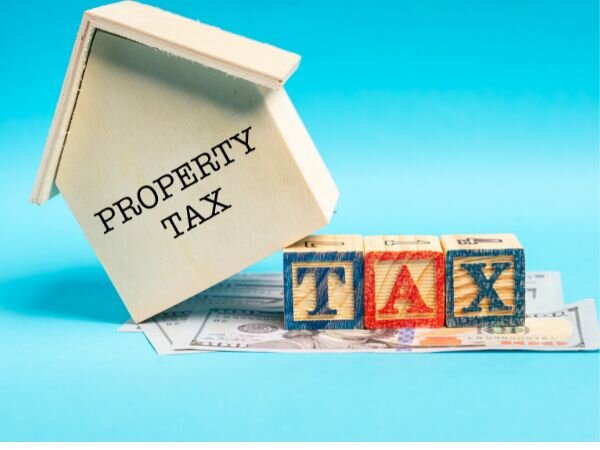
Property taxes in Chicago are some of the highest in the state. Which is important to know. This is very important for people who own homes and people who buy and sell houses. But in Illinois, smaller towns may also have high property taxes because they tax and value land in different ways. It’s interesting that some Chicago areas may have higher property taxes than the city itself. Anyone who buys a house or puts money into real estate should think about this. How you save and spend your money can change a lot because of these differences.
It’s not enough to just look at Bloomington, IL homes’ taxes. You should also check out the rates in Illinois and nearby places that are known for having higher rates. Some cities, like Aurora and Rockford, may have different rates because they need and want different things, like roads and schools. You can look at home taxes in other Illinois places and compare them to those in Bloomington if you know a lot about them.
What Is the Local Property Tax Rate?
People in Bloomington, IL who own homes or deal in real estate need to know the property tax rate in order to make smart choices about their money. The property tax rate in this area can change for many reasons. The property’s assessed value and the tax rates set by different taxing bodies, such as county agencies, city governments, and school systems. To figure out the Bloomington, IL property tax rate, an assessor has to look at the land and say how much it’s worth. Remember that these prices might change from one year to the next depending on the budget and what the local assessors find.
If you live in McLean County, Bloomington’s property tax rate in 2023 could be anywhere from 7% to 9%. Homeowners should know that deductions and limits can help them pay less in taxes. Know about these changes if you live in Bloomington, IL or want to buy a house there. It might help you make better financial plans. Tax rates on real estate can also change a lot if the business or the way the local government works changes.
Helpful , IL Blog Articles
- Filing A Quitclaim Deed For Real Estate In Bloomington, IL
- Taxes When Selling Your Home In Bloomington, IL
- Selling A Mold-Affected House in Bloomington, IL
- Sell Your House To A Developer In Bloomington, IL
- Can You Sell a House with a Lien in Bloomington, IL
- Discover Fun Facts About Bloomington, IL
- Best and Worst Neighborhoods in Bloomington, IL
- Best Things to Do in Bloomington, IL, with Kids
- Average Cost to Sell a House in Bloomington, IL
- Guide to Property Tax Rates in Bloomington, IL
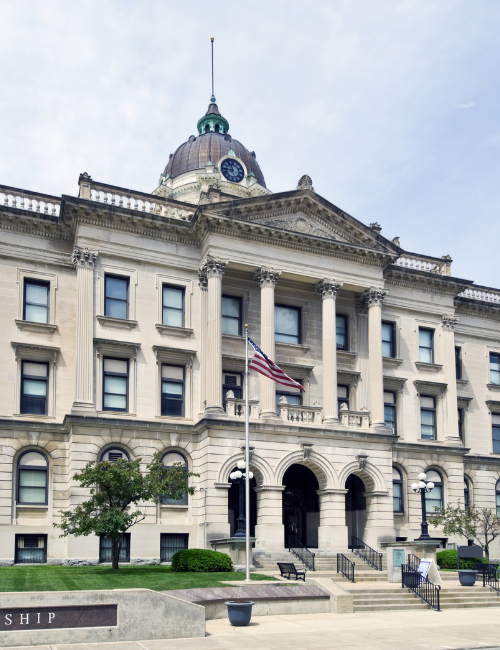
| TAX SYSTEM | BLOOMINGTON IL | MCLEAN COUNTY, ILLINOIS | STATE OF ILLINOIS | AVERAGE | SALES TAX |
| GENERAL SALES TAX | SALES TAXES | PENSIONS | FUEL | MOTOR FUEL | MONEY |
| INCOME TAXES | INCOME TAX | INCOME TAX RATE | FAIR MARKET VALUE | COST | GAS TAX |
| MOTOR FUEL TAX | COST OF LIVING | BUDGETING | SALES TAX | FLAT TAX | FLAT INCOME TAX |
| CALCULATOR | CALCULATION | ESTIMATE YOUR PROPERTY TAX |
